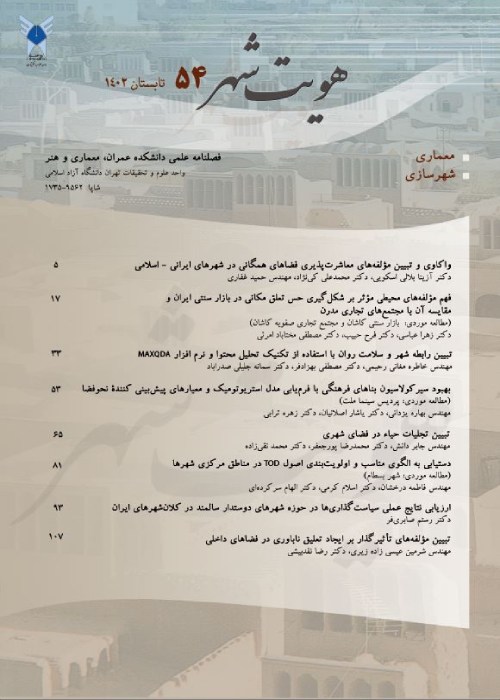The Relationship between Metacognitive beliefs and undergraduate student’s architectural design courses score (Case study: Architectural design 5 students)
Learning is the result of personal beliefs and attitudes, environmental, and behavioral factors that many researchers state that each of them can affect other two factors. On the other hand, Self-regulated learning is aligned most closely with educational aims refers to learning that is guided by metacognition (thinking about one's thinking), strategic action (planning, monitoring, and evaluating personal progress against a standard), and motivation to learn. Researchers found that any development of self-regulated learning is governed by a variety of interacting cognitive, metacognitive, and motivational components. Self-regulated learning refers to the ability to understand and control learning conditions through setting goals, selecting strategies to achieve them, implementing those strategies, and monitor the progress towards them. These factors are the main and most important factors in developing an architectural design too. So you can imagine one with these abilities can become a successful designer and if it is true, the educational system must try to enhance these abilities as a predictor of success as mentioned above. Metacognitive training means increasing individual abilities in the discipline of cognitive processes and their control on their cognitive processes, which plays an important role in improving it, including reasoning, rational thinking, problem-solving and critical thinking. Problem solving is the main trend in architectural design education, so finding the relationship between student’s successes in architectural design, their metacognitive abilities can be a primary indicator of attention to metacognition based teaching method as a valuable method in architectural design education instead of our today’s cognitive method.
Therefore, the present study aims at determining the problem of whether there is a meaningful relationship between their meta-cognitive beliefs and the undergraduate architectural design course scores grades and sketch, as the first step towards the formulation of meta-cognitive teaching methods in architectural design. Therefore, a survey was conducted in the form of a questionnaire among 208 of senior students of architecture design lessons among universities in Tehran city. They were asked to complete a meta-cognitive belief questionnaire and a questionnaire related to their cognitive knowledge in architecture and architectural experience as well as their grades in architectural design courses and draw an architectural sketch that graded by three professors in the field of architectural design.
The results show that the demographic variables such as age, gender, and economy, as well as the level of their knowledge and experiences in the field of architecture, have no significant relationship with their architectural design scores. However, the results of correlation and regression analysis of data showed that subscales of positive beliefs about worry, cognitive self-consciousness, and beliefs about the need to control thoughts have positive effects on their architectural design scores and there is a significant relationship between the metacognitive ability of the individual and his ability to design the architecture. Instead of its importance in the architectural design process, it has less connection with Architectural sketch scores as a creative process. So the results may use as a hypothesis of using Metacognitive teaching methods in Architectural design courses of undergraduate Architecture students.
- حق عضویت دریافتی صرف حمایت از نشریات عضو و نگهداری، تکمیل و توسعه مگیران میشود.
- پرداخت حق اشتراک و دانلود مقالات اجازه بازنشر آن در سایر رسانههای چاپی و دیجیتال را به کاربر نمیدهد.


